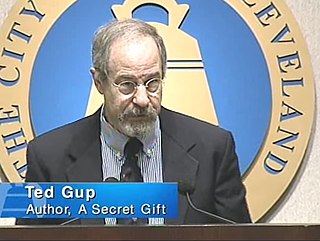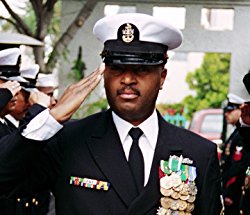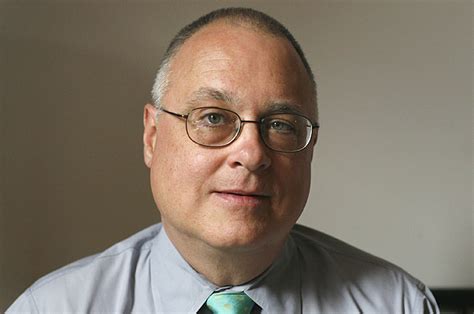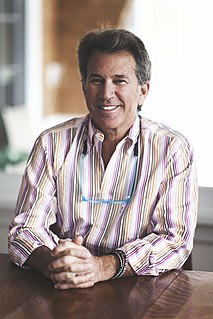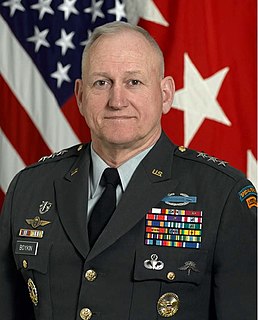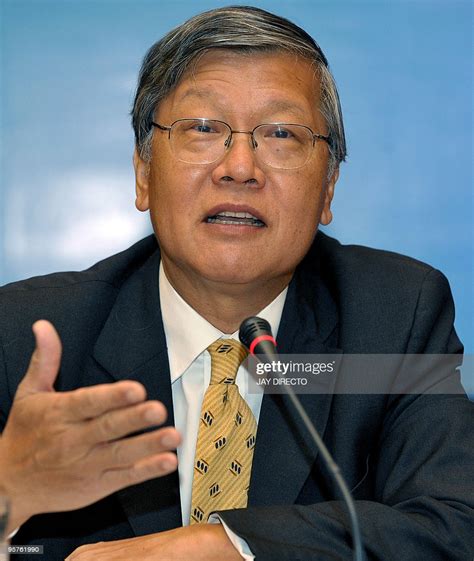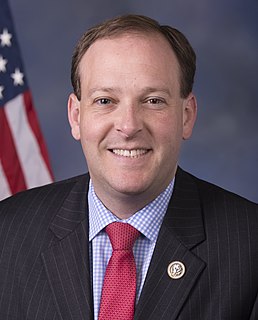Top 1200 Financial Advisor Quotes & Sayings - Page 5
Explore popular Financial Advisor quotes.
Last updated on October 7, 2024.
At Travelers, we were much more opportunistic. It was very successful, but it wasn't an integrated financial services company. We had a property casualty company, a life company, a brokerage company. We were a financial conglomerate. It wasn't a unified, coordinated strategy of any sort. When it merged with Citi, that became a big issue; Citi, at that time, wasn't yet a fully integrated, coordinated company.
No one anticipates divorce when they're exchanging vows, and it can be devastating emotionally and financially. To ease the financial side of the blow, you need to maintain your financial identity in your relationship. That means having your own credit history - you need your own credit card - and your own savings and retirement accounts.
The banks, because of mismanagement, because of huge risk taking, are now in very vulnerable positions. We can expect that we're gonna have to do more to shore up the financial system. We also are gonna have to make sure that we set up financial regulations so that not only does this never happen again, but you start having some sort of - trust in how the credit markets work again.
Acting on the stage is a luxury for me. I lose money. I make movies for financial reasons and this allows me the luxury of acting on Broadway. Hollywood, unfortunately, exploits actors for their own reasons, which are usually financial. So we might as well exploit Hollywood as much as it exploits us.
At my first library job, I worked with a woman named Sheila Brownstein, who was The Reader's Advisor. She was a short, bosomy Englishwoman who accosted people at the shelves and asked if they wanted advice on what to read, and if the answer was yes, she asked what writers they already loved and then suggested somebody new.
The free enterprise concept inherent in the economic model of capitalism should mean common people, or lower and middle class wage-earners, have greater potential to rise up and gain financial independence. In reality, however, free enterprise all too often leads to an almost total lack of government regulation that in turn allows the global elite to run amuck in Gordon Gecko-style financial coups.
George Clooney married Amal Alamuddin this year. Amal is a human rights lawyer who worked on the Enron case, was an advisor to Kofi Annan regarding Syria, and was selected for a three-person commission investigating rules of war violation in the Gaza Strip. So tonight, her husband is getting a lifetime achievement award.
Finance ministers and central bank governors have the seats at the table, not labor unions or labor ministers. Finance ministers and central bank governors are linked to financial communities in their countries, so they push policies that reflect the viewpoints and interests of the financial community and barely hear the voices of those who are the first victims of dictated policies.
The real secrets start leaking out when there are too many secrets because people can't remember what's a real secret. There's a very famous line by National Security Advisor McGeorge Bundy: "If you guard your toothbrushes and your diamonds with equal zeal, you'll lose fewer toothbrushes and more diamonds." And that's where we are right now.
As value investors, our business is to buy bargains that financial market theory says do not exist. We've delivered great returns to our clients for a quarter century-a dollar invested at inception in our largest fund is now worth over 94 dollars, a 20% net compound return. We have achieved this not by incurring high risk as financial theory would suggest, but by deliberately avoiding or hedging the risks that we identified.
They [leaders in Western Europe] do not misuse financial instruments, financial injections, but, first of all, seek structural change. This is urgent for our economy as well, maybe even more urgent bearing in mind the problem that we cannot yet deal with, namely the prevalence of the oil and gas sector in the Russian Federation and, as a result, dependence on revenue from oil and gas.
There is the case of Henry Kissinger who was a known scholar who later became the National Security Advisor to President Nixon and later on Secretary of State. He received the Nobel Peace Prize for his role in establishing relations between the U.S. and China. At the same time that he was doing that he was also encouraging all sorts of covert actions against Cuba including political assassinations. This contradiction is one that is hard to understand.
In a world of businessmen and financial intermediaries who aggressively seek profit, innovators will always outpace regulators; the authorities cannot prevent changes in the structure of portfolios from occurring. What they can do is keep the asset-equity ratio of banks within bounds by setting equity-absorption ratios for various types of assets. If the authorities constrain banks and are aware of the activities of fringe banks and other financial institutions, they are in a better position to attenuate the disruptive expansionary tendencies of our economy.
Trump wants to be an autocrat, he does want to be a Vladimir Putin-style ruler. His chief strategic advisor, Steve Bannon, is a follower of Alexander Dugin. Dugin believes liberal democracy should be destroyed and it should be destroyed from the right, and an alliance of autocracy should form between the United States, Europe and Russia, in order to confront Islam.
When large companies take on risk, then they impose risks on the rest of the system. And these are systemic risks and these systemic risks we never used to think were really that important, but as soon as we recognize how the financial sector - the risks the financial sector takes on can impact the entire global economy, we realize that those risks needed to be controlled for the social good.
I can't imagine living a life without God in my life. He is my best friend, He's my buddy, He's the one that I talk to when there's no one around. I talk to Him when people are around a lot too. He's my confidant, He's my advisor, He's my director. I just don't know why you wouldn't want that in your life. He's just like a bodyguard, He is your protector.
When I was a child I could do math and art, so I had left- and right-brain capabilities. But I've seen my children, who are more right-brained, struggling. My son was told he wouldn't make it to college, but he dogged it through and ended up being accepted by 10 major art schools after the high school advisor said, "Please don't apply. You're going to be disappointed." That kid's an artist now.
A rentier is an investor whose relationship to a company or enterprise is strictly limited to the ownership of financial wealth (such as stocks or bonds) and the receipt of income on that wealth (such as dividends or interest). The financial system performs dismally at its advertised task, that of efficiently directing society's savings towards their optimal investment pursuits. The system is stupefyingly expensive, gives terrible signals for the allocation of capital, and has surprisingly little to do with real investment.
It's critical to level the playing field, to make prices and risks clear up front, so when someone signs on for a student loan or a mortgage or a credit card, they know the tricks and traps hidden in the fine print. That's why the Consumer Financial Protection Bureau has been working on a new financial aid shopping sheet. A shorter, two-page credit card agreement, a simpler mortgage disclosure form. All those are aimed toward helping people understand the basic bargain.
Business requires understanding financial matters, but management is different from running the financial aspects of the business - it requires understanding complex systems, how they operate, the nature of organisations, what happens when people interact in groups and how to motivate and guide people.
In the immediate postwar era, financial crises in advanced countries were rare events, and before 1970 did not happen at all. Since then they have occurred more often, and 2008 was the most damaging of them all to date. If we have moved back to a regime of regular financial crises - like the one we had from the 1870s to the 1930s - then our economic future will be very different from our recent past.
We have full disclosure in transparency of our audited, our financial audits. It's on our Web site. It is, I think 16 or 20- something pages, which most public companies or private companies and most ministries don't disclose. So we have always operated with financial integrity and full transparency.
The single greatest line I ever wrote as an analyst was after Lomas said they were hedged: 'The Lomas Financial Corporation is a perfectly hedged financial institution: it loses money in every conceivable interest rate environment.' I enjoyed writing that sentence more than any sentence I ever wrote.
One measure for promoting both stability and fairness across financial market segments is a small sales tax on all financial transactions - what has come to be known as a Robin Hood Tax. This tax would raise the costs of short-term speculative trading and therefore discourage speculation. At the same time, the tax will not discourage "patient" investors who intend to hold their assets for longer time periods, since, unlike the speculators, they will be trading infrequently.
The powers of financial capitalism had a far-reaching aim, nothing less than to create a world system of financial control in private hands able to dominate the political system of each country and the economy of the world as a whole. This system was to be controlled in a feudalist fashion by the central banks of the world acting in concert, by secret agreements arrived at in frequent meetings and conferences.
The generally accepted theory is that financial markets tend towards equilibrium, and...discount the future correctly. I operate using a different theory, according to which financial markets cannot possibly discount the future correctly because the do not merely discount the future; they help to shape it.
The most serious problems lie in the financial sphere, where the economy's debt overhead has grown more rapidly than the 'real' economy's ability to carry this debt. [...] The essence of the global financial bubble is that savings are diverted to inflate the stock market, bond market and real estate prices rather than to build new factories and employ more labor.
Happiness is yours in the here and now. The painful states of anxiety and loneliness are abolished permanently. Financial affairs are not financial problems. You are at ease with yourself. You are not at the mercy of unfulfilled cravings. Confusion is replaced with clarity. There is a relieving answer to every tormenting question. You possess a True Self. Something can be done about every unhappy condition. While living in the world you can be inwardly detached from its sorrows to live with personal peace and sanity.
I think that today, more so than ever, corporate responsibility is the best strategic as well as financial path that most businesses can follow. For most businesses there are both compelling reasons to be responsible and compelling statistics that validate that responsible businesses do better according to traditional financial metrics. Of course, how you define "responsible" is somewhat of a conundrum.
In terms of my profession, I'm passionate about financial literacy. I want to live in a financially literate society. I want kids to understand the importance of savings and investing. I want to try to replicate the great savers who came out of the Depression, the best savers the country has ever seen. It's crucial that people understand the importance of financial literacy, because it's actually life saving.
My wife has been my closest friend, my closest advisor. And ... she's not somebody who looks to the limelight, or even is wild about me being in politics. And that's a good reality check on me. When I go home, she wants me to be a good father and a good husband. And everything else is secondary to that.
He was a volatile mixture of confidence and vulnerability. He could deliver extended monologues on professional matters, then promptly stop in his tracks to peer inquisitively into his guest's eyes for signs of boredom or mockery, being intelligent enough to be unable fully to believe in his own claims to significance. He might, in a past life, have been a particularly canny and sharp-tongued royal advisor.
A global financial cabal engineered a fraudulent housing and debt bubble [2008], illegally shifted vast amounts of capital out of the US; and used 'privatization' as a form of piracy - a pretext to move government assets to private investors at below-market prices and then shift private liabilities back to government at no cost to the private liability holder Clearly, there was a global financial coup d'etat underway.
Maybe [the Republicans] 'll find ways around it, but the financial system of the world depends very heavily on the credibility of the US Treasury Department. US Treasury securities are what's called "good as gold"; they're the basis of international finance, and if the government can't uphold them, if they become valueless, the effect on the international financial system could be quite severe. But in order to destroy a limited health-care law, the right-wing Republicans, the reactionary Republicans, are willing to do that.
It's really an interesting crazy world where like ultimately you have to work your ass off and sacrifice a lot in your life and the end goal is personal and financial gain. You know, it's not like you're doing anything helpful to the world. You're really just trying to get ahead and to beat out the next person and to be on top and at the very top of those financial firms, like the people that make the crazy amounts of money I mean that's what their after.
It was actually a lot more helpful to have Calvin Hart, a cop, as my template. He was also my technical advisor on Shaft. This time, I kinda got to go to Jersey City with him, and hang around, and watch him interact with other cops, people in the projects, and see what it means to be him. People call him 'Big Daddy' and he's this larger-than-life hero to a lot of people.
The President's science advisor, who is a former Harvard professor named Holdren, is involved in the email scandals and covering up the fact that data has been lost, the fact that contrary opinions to the global warming crowd has been squeezed out of scientific journals ... Now this is an international conspiracy.
I have been an organizer and then activist and a legislator, all of that. But then there's this big gap after I advanced in Congress and ended up as the ranking member of financial services committee. It took me into the financial services issues and Wall Street and Dodd Frank. And it took me away from the things that I did years ago.
Financial innovation can be highly dangerous, though almost no one will tell you this. New financial products are typically created for sunny days and are almost never stress-tested for stormy weather. Securitization is an area that almost perfectly fits this description; markets for securitized assets such as subprime mortgages completely collapsed in 2008 and have not fully recovered. Ironically, the government is eager to restore the securitization markets back to their pre-collapse stature.
Death is the only wise advisor that we have. Whenever you feel, as you always do, that everything is going wrong and you're about to be annihilated, turn to your death and ask if that is so. Your death will tell you that you're wrong; that nothing really matters outside its touch. Your death will tell you, 'I haven't touched you yet.
My parents were working class folks. My dad was a bartender for most of his life, my mom was a maid and a cashier and a stock clerk at WalMart. We were not people of financial means in terms of significant financial means. I always told them, 'I didn't always have what I wanted. I always had what I needed.' My parents always provided that.
It is no exaggeration to say that rising inequality has driven many of the 99 percent into a financial ditch. It also helped spawn the housing bubble that gave us the financial crisis of 2008, the lingering effects of which have forced many OWS protesters to try to launch their careers in by far the most inhospitable labor market we've seen since the Great Depression. Even those recent graduates who manage to find jobs will suffer a lifelong penalty in reduced wages.
Kevin Freeman has been warning America’s leadership of the dangers of financial terrorism for the last three years. It is happening now and Kevin provides the evidence in his book Secret Weapon. Every American needs to understand how our financial markets have been manipulated by people who want to destroy the nation and how they can do even greater damage in the future. This book is a critical read for everyone.
There really are two Americas, one for the grifter class and one for everybody else. In everybody-else land, the world of small businesses and wage-earning employees, the government is something to be avoided, an overwhelming, all-powerful entity whose attentions usually presage some kind of financial setback, if not complete ruin. In the grifter world, however, government is a slavish lapdog that the financial companies that will be the major players in this book use as a tool for making money.
We are all used to paying a sales tax when we buy things - almost 9 percent here in New York City. The application of this concept to the financial sector could solve our need for revenue, bring some sanity back into the financial sector, and give us a way to raise the revenue we need to run the government in a fiscally responsible way.
She [Carolyn Maloney] understands the whole picture. She is comfortable with these issues 'cause she is chair of the committee, and she's dogged and will make sure the average woman and man is represented as well as making sure that our financial system stays afloat. In other words, she gets it and she has represented the financial district, but she also represents the average person and definitely the average woman.
Financial institutions have been merging into a smaller number of very large banks. Almost all banks are interrelated. So the financial ecology is swelling into gigantic, incestuous, bureaucratic banks-when one fails, they all fall. We have moved from a diversified ecology of small banks, with varied lending policies, to a more homogeneous framework of firms that all resemble one another. True, we now have fewer failures, but when they occur... I shiver at the thought.
Despite [] promises, I am concerned that there has been no discernible progress in the case. Equally concerning is the fact that Goran Radosavljevic, the commander of the facility where the Bytyqi's were murdered, remains a close advisor to the current government.... I call upon the Serbian government to also aspire to new heights in its own processing of war crimes from the 1990's and to finally ensure justice in the Bytyqi case.









